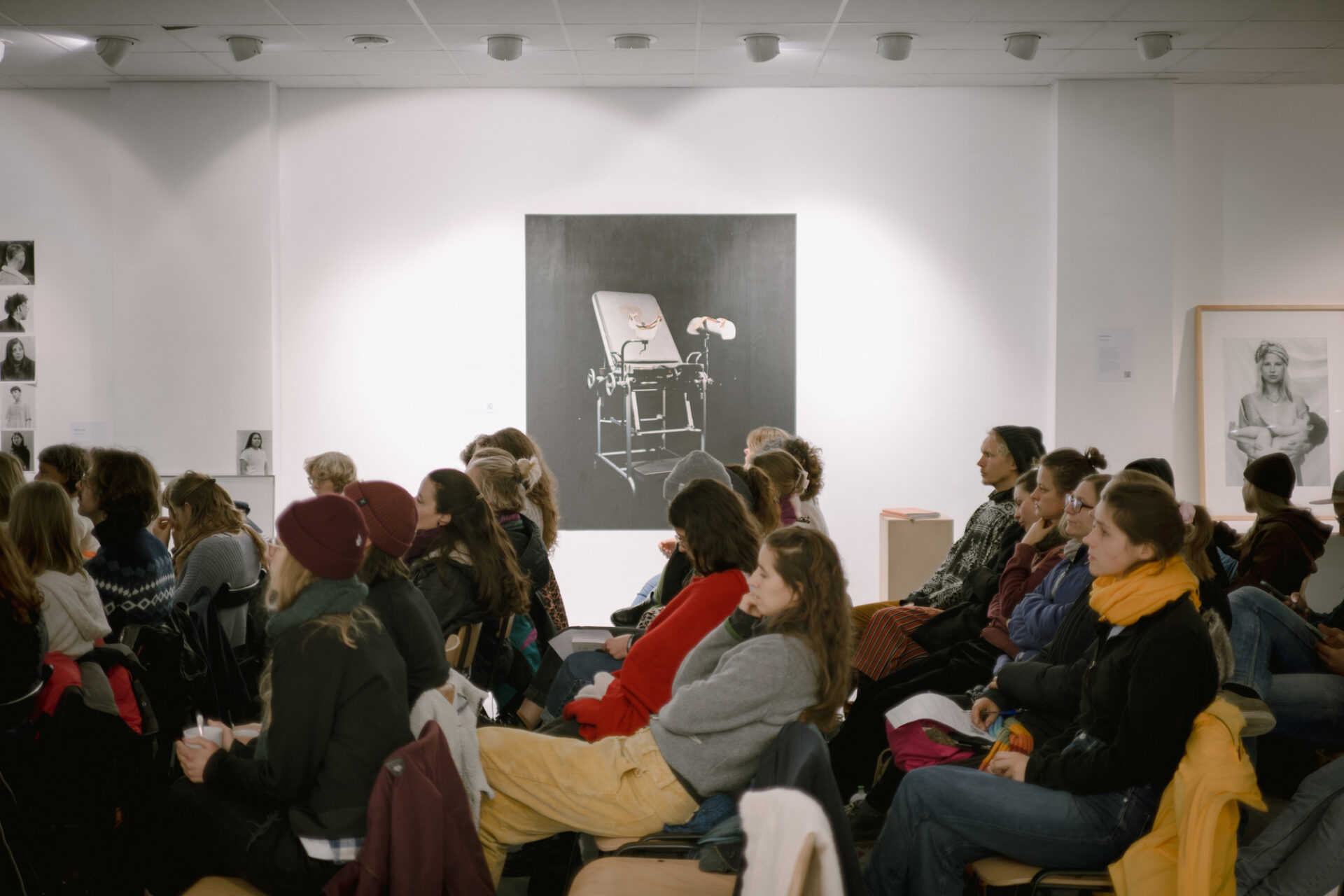On the lived experience of those affected by Polycystic Ovarian Syndrom.
Acne, hair loss, excessive facial hair growth, weight gain, painful cysts, and absent menstruation—these are just some of the challenges faced by those affected with polycystic ovary syndrome (PCOS). As a complex metabolic disorder affecting approximately 10% of women* of reproductive age, PCOS is one of the leading causes of infertility.
In her project, The Thief of Womanhood, Amelie Sachs takes a deeply personal and intimate look at a condition that remains largely overlooked in medical research. Drawing from her own journey as a former PCOS patient, she collaborates with others affected by the syndrome to make the diverse struggles associated with PCOS visible and tangible.
This project goes beyond mere documentation of symptoms; it delves into the emotional impact of PCOS on mental health, self-esteem, and body image. Simultaneously, she critically examines the historically male-dominated perspective in gynecology by exploring medical-historical objects that allude to the violent past of gynecology and maternity medicine.
Designed as a photo book, The Thief of Womanhood explores the sensitive and nuanced representation of illness and femininity in imagery. The project serves as a platform for resistance and empowerment in women’s health, advocating for improved self-determined healthcare.
In 2023 the book dummy was awarded the Silver Medal at the German Photobook Prize in the Student Project category. The work was exhibited at the International Festival of Photographic Images in Regensburg and as part of the group exhibition WUT MACHT LUST at the Galerie für Fotografie in Hanover in the same year. In 2024 the project was featured on the platform FOTOHOF CALLING and in 2025, parts of the project were featured on SPIEGEL Online and published in SPIEGEL magazine.
 Camilla was diagnosed at the age of 21 after she stopped taking the pill and her periods did not return. Since then, she has been trying to manage her symptoms, such as hair loss and obesity. Above all, Camilla is concerned about her desire to have children, as most PCOS sufferers cannot become pregnant naturally.
Camilla was diagnosed at the age of 21 after she stopped taking the pill and her periods did not return. Since then, she has been trying to manage her symptoms, such as hair loss and obesity. Above all, Camilla is concerned about her desire to have children, as most PCOS sufferers cannot become pregnant naturally.  Many affected by PCOS feel uncomfortable in their bodies and try to find ways to reduce their symptoms. However there is a lack of social acceptance and therapy methods for polycystic ovary syndrome.
Many affected by PCOS feel uncomfortable in their bodies and try to find ways to reduce their symptoms. However there is a lack of social acceptance and therapy methods for polycystic ovary syndrome. 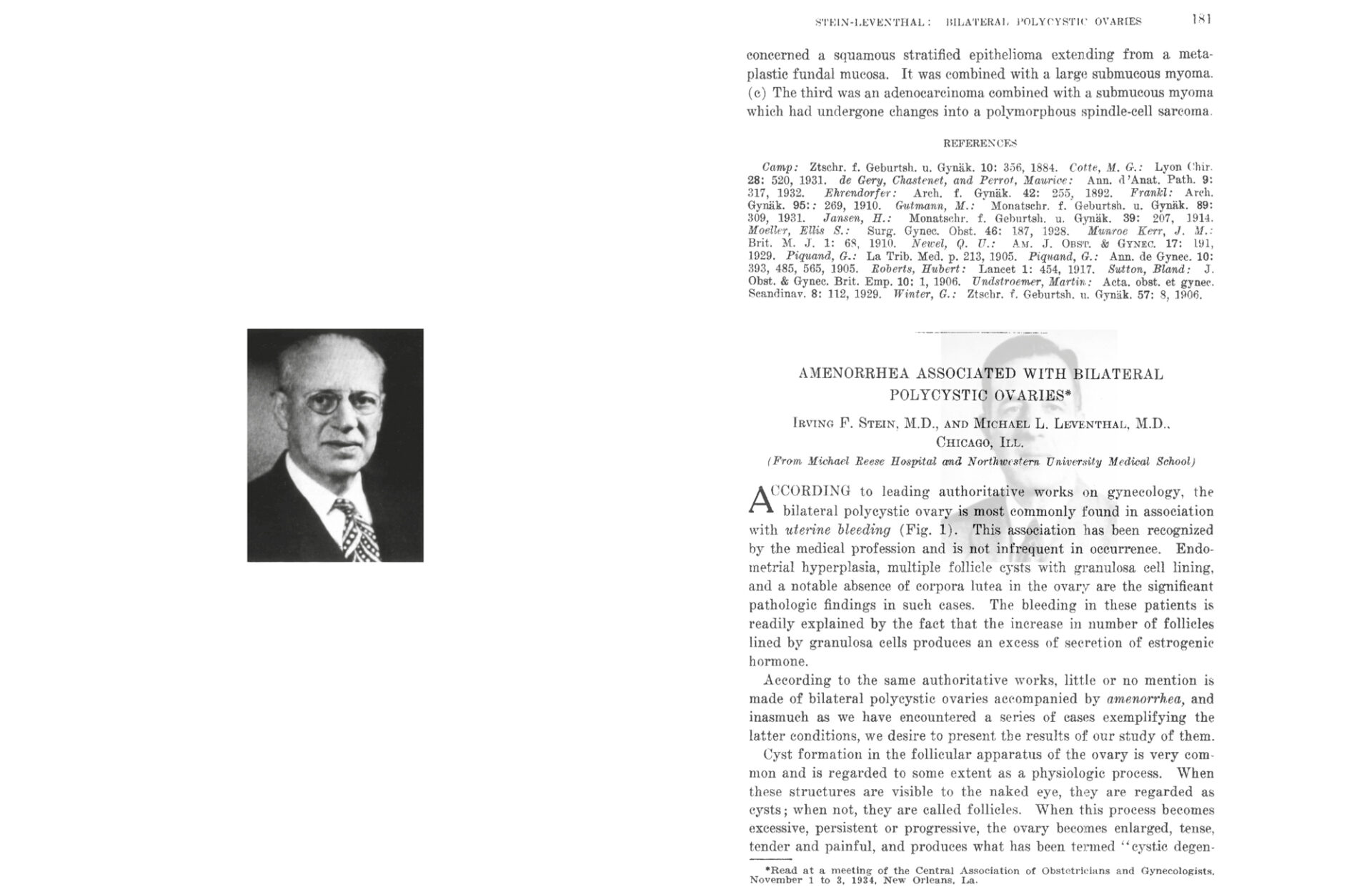 Dr. Stein and Dr. Leventhal were among the first scientists to describe the PCO-Syndrome in their report in 1935 in detail.
Dr. Stein and Dr. Leventhal were among the first scientists to describe the PCO-Syndrome in their report in 1935 in detail.  “With PCOS, you‘re forced to have an incredibly intimate relationship with your body, which is very painful when your body isn‘t functioning properly." - Luisa E.
“With PCOS, you‘re forced to have an incredibly intimate relationship with your body, which is very painful when your body isn‘t functioning properly." - Luisa E. 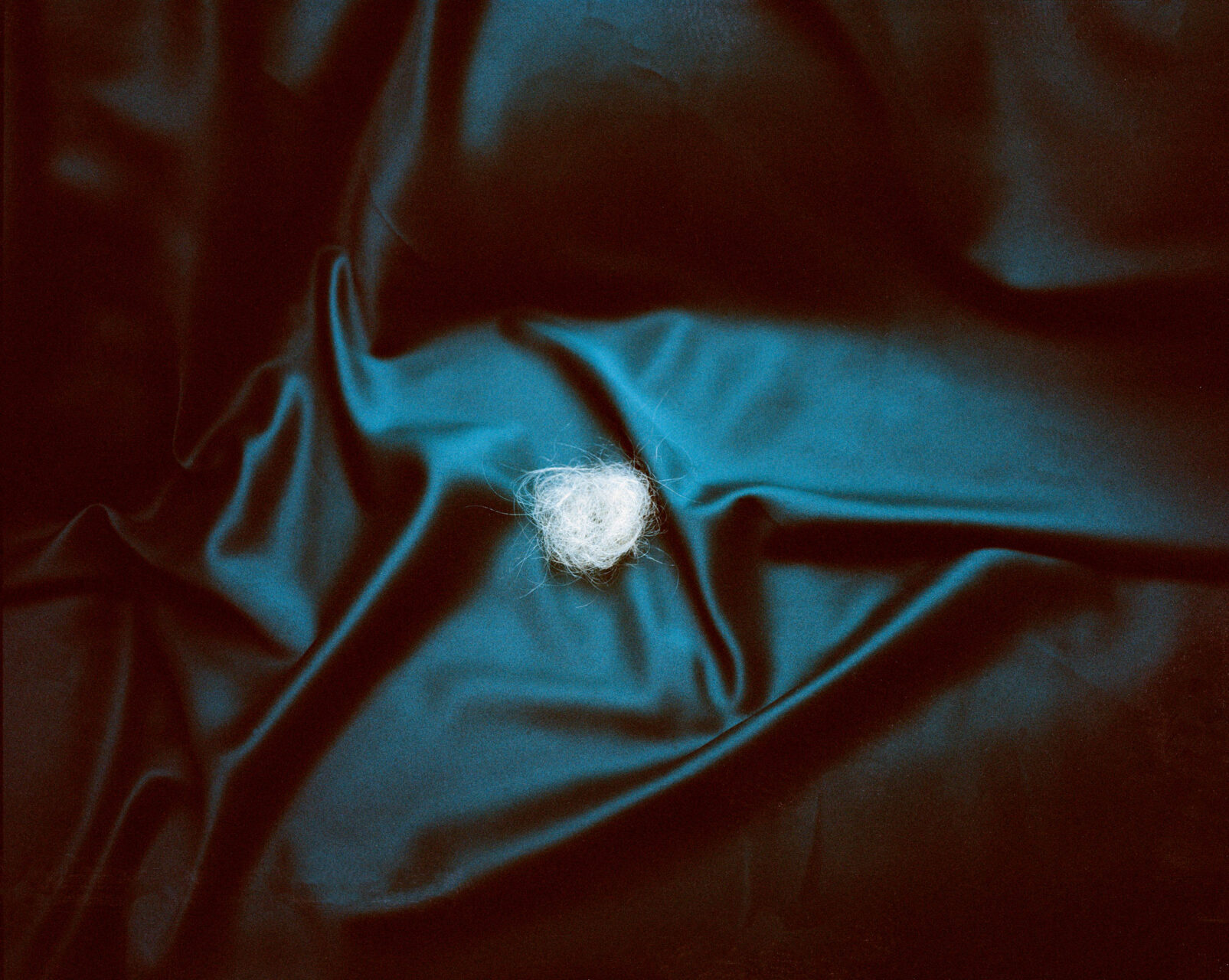 Common symptoms of PCOS include obesity, hair loss, excessive male hair growth, absent menstruation, and infertility.
Common symptoms of PCOS include obesity, hair loss, excessive male hair growth, absent menstruation, and infertility. 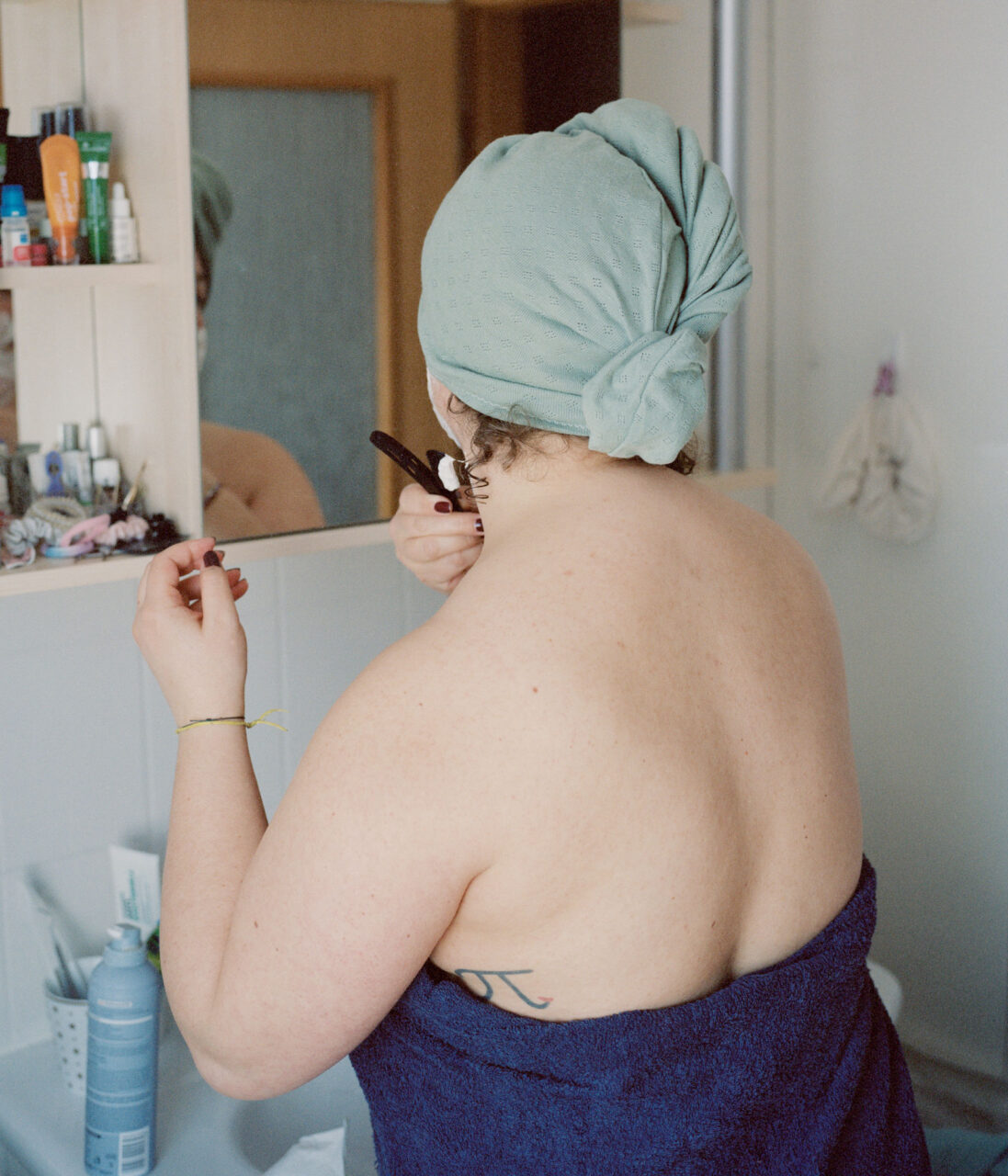 Luisa has been diagnosed with PCOS for about two years and receives no support from her gynecologist or endocrinologist. She describes the syndrome as a constant struggle with her own body. Her boyfriend taught her how to remove her facial hair.
Luisa has been diagnosed with PCOS for about two years and receives no support from her gynecologist or endocrinologist. She describes the syndrome as a constant struggle with her own body. Her boyfriend taught her how to remove her facial hair. 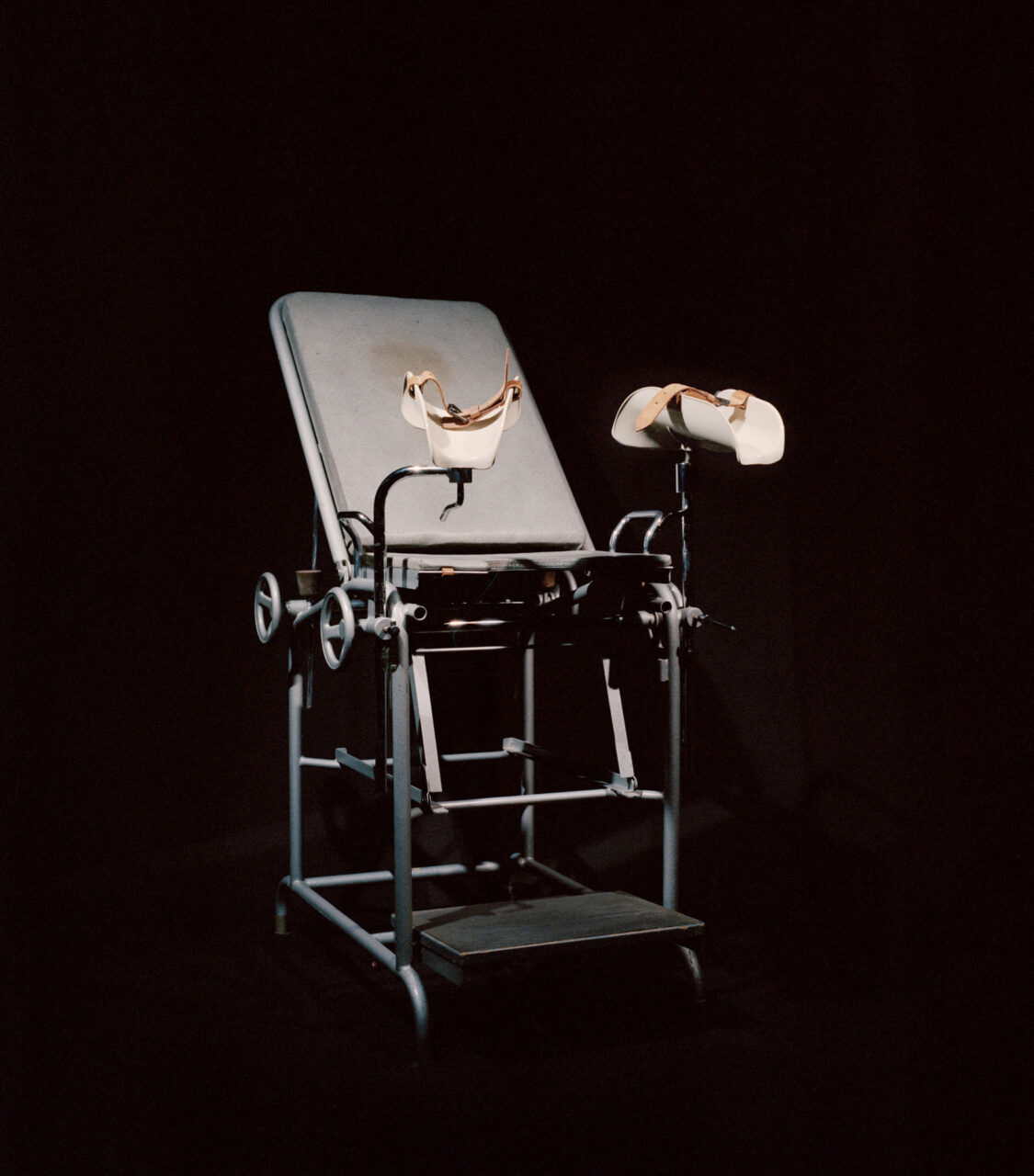 A gynecological chair from the middle of the 20th century on which the patient's legs could be fixed with leather straps. Today, modern chairs are better adapted to the patients' ergonomics.
A gynecological chair from the middle of the 20th century on which the patient's legs could be fixed with leather straps. Today, modern chairs are better adapted to the patients' ergonomics.  A couple of years ago, Sugi couldn't go swimming in public. Now she even goes swimming in the sea in winter as a way of embracing her body.
A couple of years ago, Sugi couldn't go swimming in public. Now she even goes swimming in the sea in winter as a way of embracing her body. 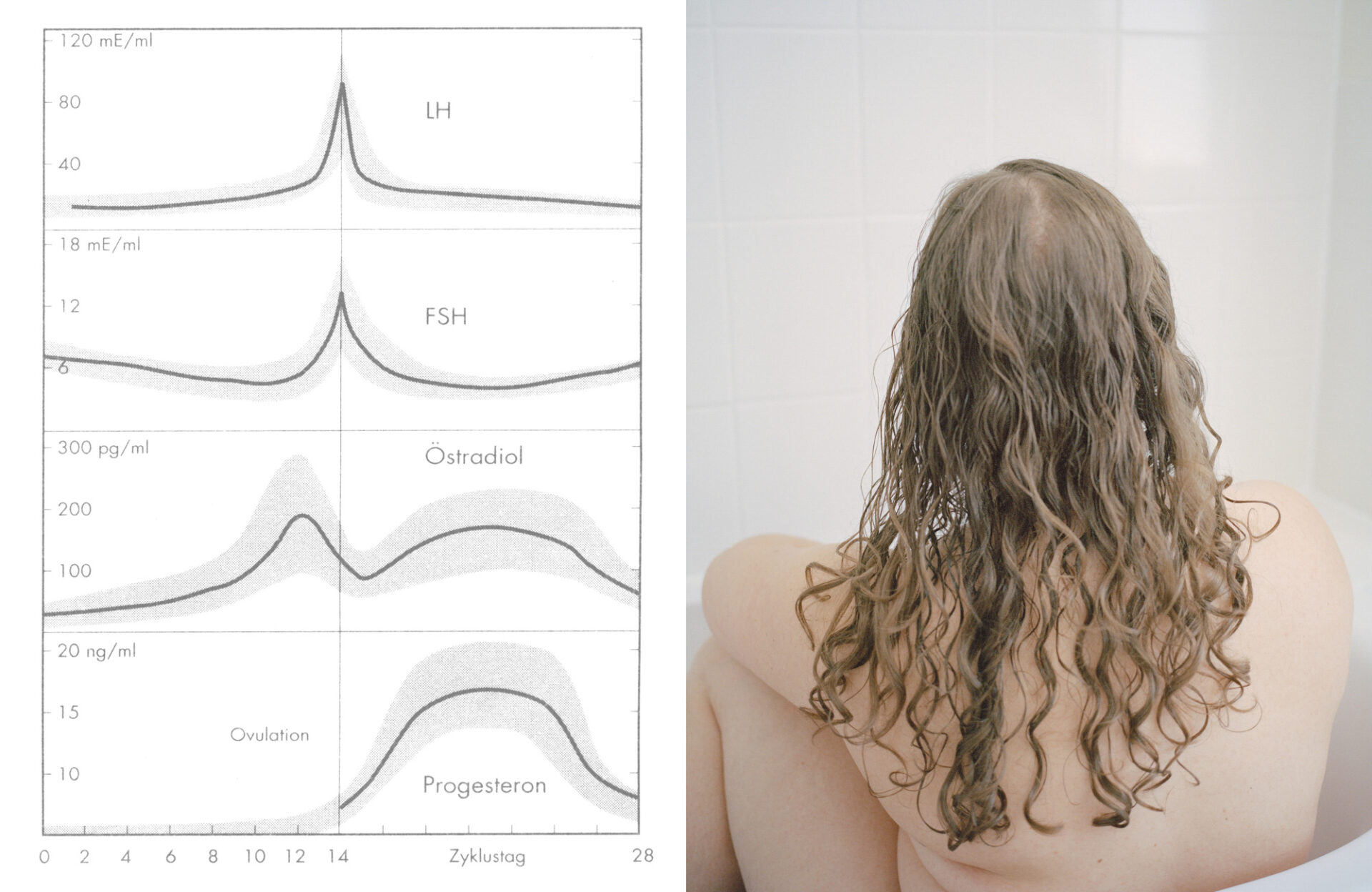 Different "female" Hormones regulate the menstrual cycle. Many people with PCOS have a higher level of testosterone, which can cause the absence of menstrual periods and male hair growth.
Different "female" Hormones regulate the menstrual cycle. Many people with PCOS have a higher level of testosterone, which can cause the absence of menstrual periods and male hair growth. 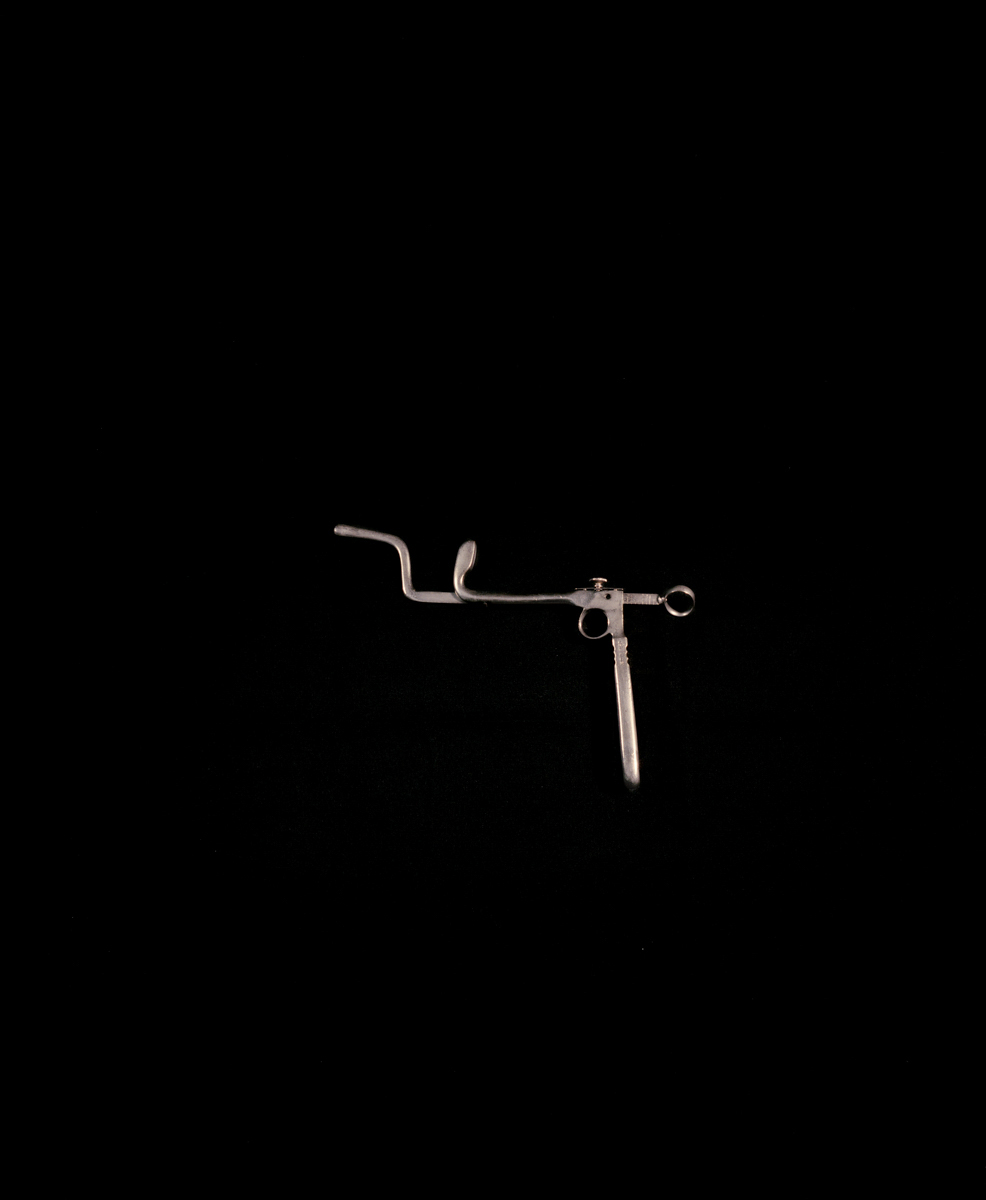 As traditional manual measurement with fingers was considered to be less accurate, new instruments were designed to precisely determine internal pelvic measurements in pregnant women. However, this pistol-shaped pelvimeter was proved uncomfortable and less effective.
As traditional manual measurement with fingers was considered to be less accurate, new instruments were designed to precisely determine internal pelvic measurements in pregnant women. However, this pistol-shaped pelvimeter was proved uncomfortable and less effective. 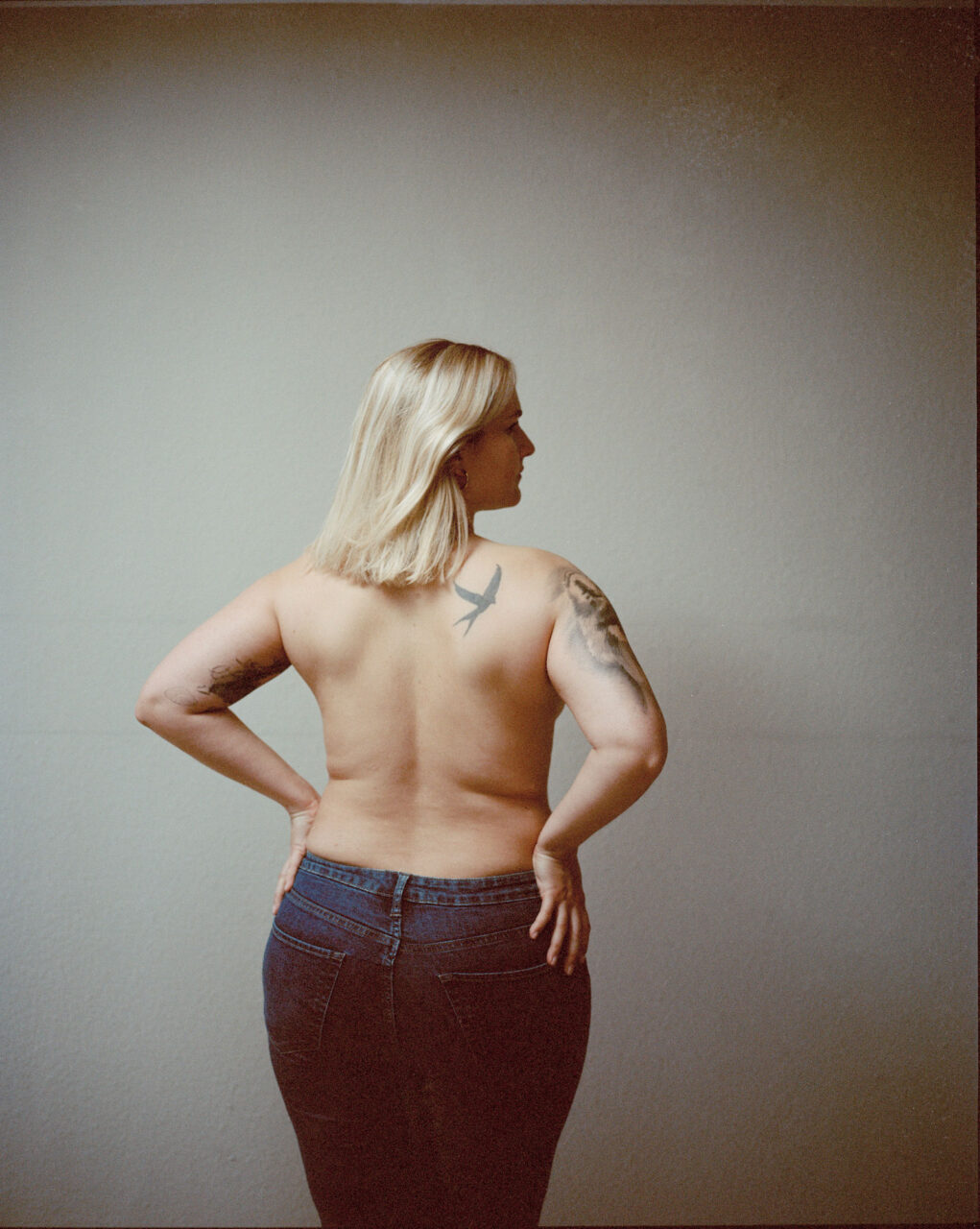 “I associate femininity with comfort and warmth. But also strength. Many women make themselves look so small. Femininity can be totally strong and also have a lot of energy and express this.“ - Camilla
“I associate femininity with comfort and warmth. But also strength. Many women make themselves look so small. Femininity can be totally strong and also have a lot of energy and express this.“ - Camilla 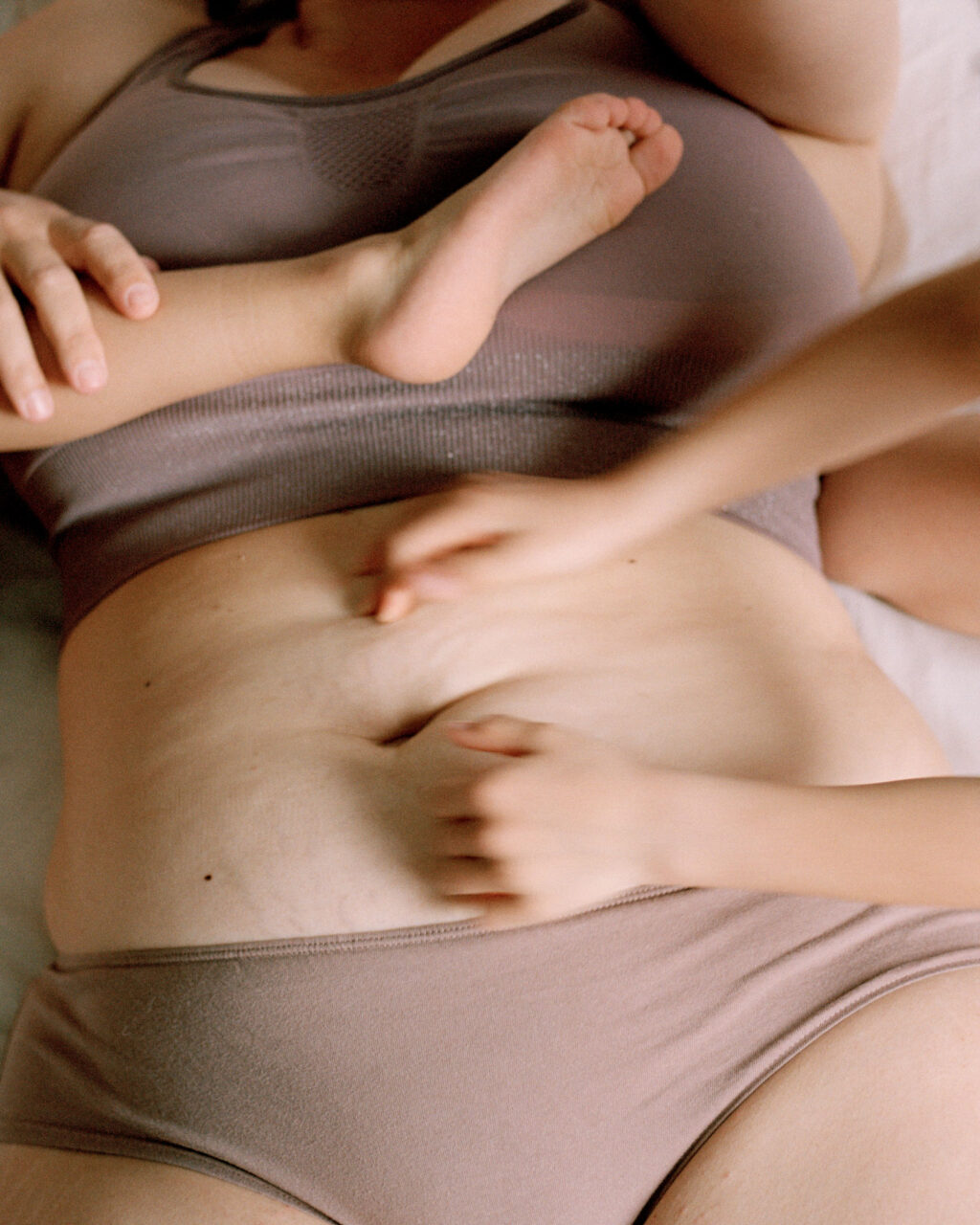 Luisa Maria, mother of twins conceived through artificial insemination, is deeply committed to women's healthcare, particularly gynecological issues. Her passion lies in supporting other women with PCOS and those struggling with infertility.
Luisa Maria, mother of twins conceived through artificial insemination, is deeply committed to women's healthcare, particularly gynecological issues. Her passion lies in supporting other women with PCOS and those struggling with infertility.  Many affected by PCOS are not able to have children naturally. Some others, however, do not want to have children at all. The treatments often depend on whether the patient wants to have a child or not. In this sense the gynecological method of treatment is often refused, if there is not a desire to have a child.
Many affected by PCOS are not able to have children naturally. Some others, however, do not want to have children at all. The treatments often depend on whether the patient wants to have a child or not. In this sense the gynecological method of treatment is often refused, if there is not a desire to have a child. 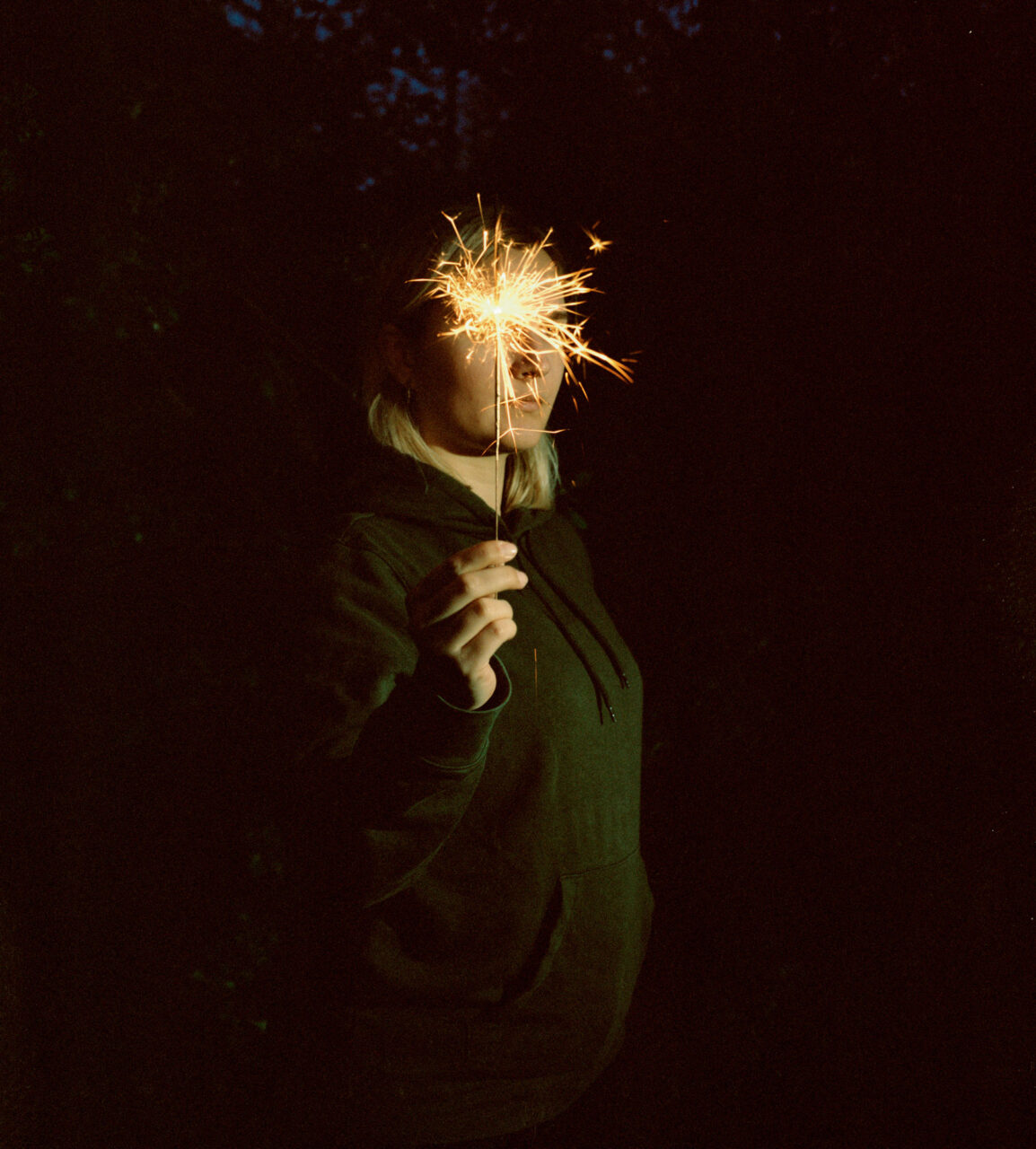 “It‘s like having two faces. On the outside, everything seems fine and you‘re smiling. But inside, you‘re constantly thinking about it and you feel somehow divided.“
- Camilla
“It‘s like having two faces. On the outside, everything seems fine and you‘re smiling. But inside, you‘re constantly thinking about it and you feel somehow divided.“
- Camilla  "When do women start reflecting on their femininity? Usually when they are diagnosed with an illness or when they want to have children and it doesn’t work out." -Luisa Maria
"When do women start reflecting on their femininity? Usually when they are diagnosed with an illness or when they want to have children and it doesn’t work out." -Luisa Maria 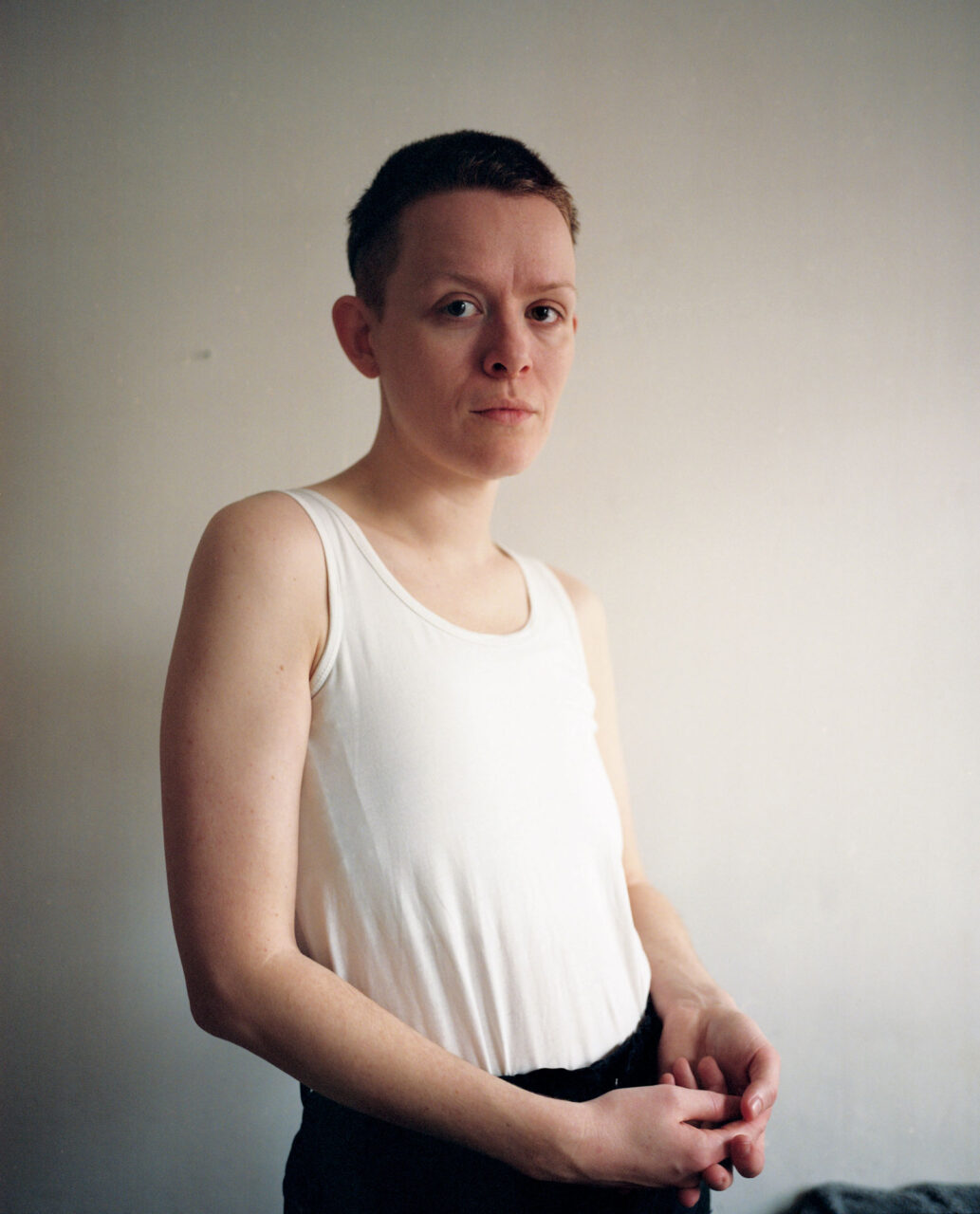 As a non-binary person, Kit challenges the conventional gender roles associated with a PCOS diagnosis. Although Kit does not have an official PCOS diagnosis, they receive only limited support in the UK for managing irregular, painful menstruation and bothersome chin hair. Hormonal treatments commonly used for PCOS are not an option for Kit.
As a non-binary person, Kit challenges the conventional gender roles associated with a PCOS diagnosis. Although Kit does not have an official PCOS diagnosis, they receive only limited support in the UK for managing irregular, painful menstruation and bothersome chin hair. Hormonal treatments commonly used for PCOS are not an option for Kit. 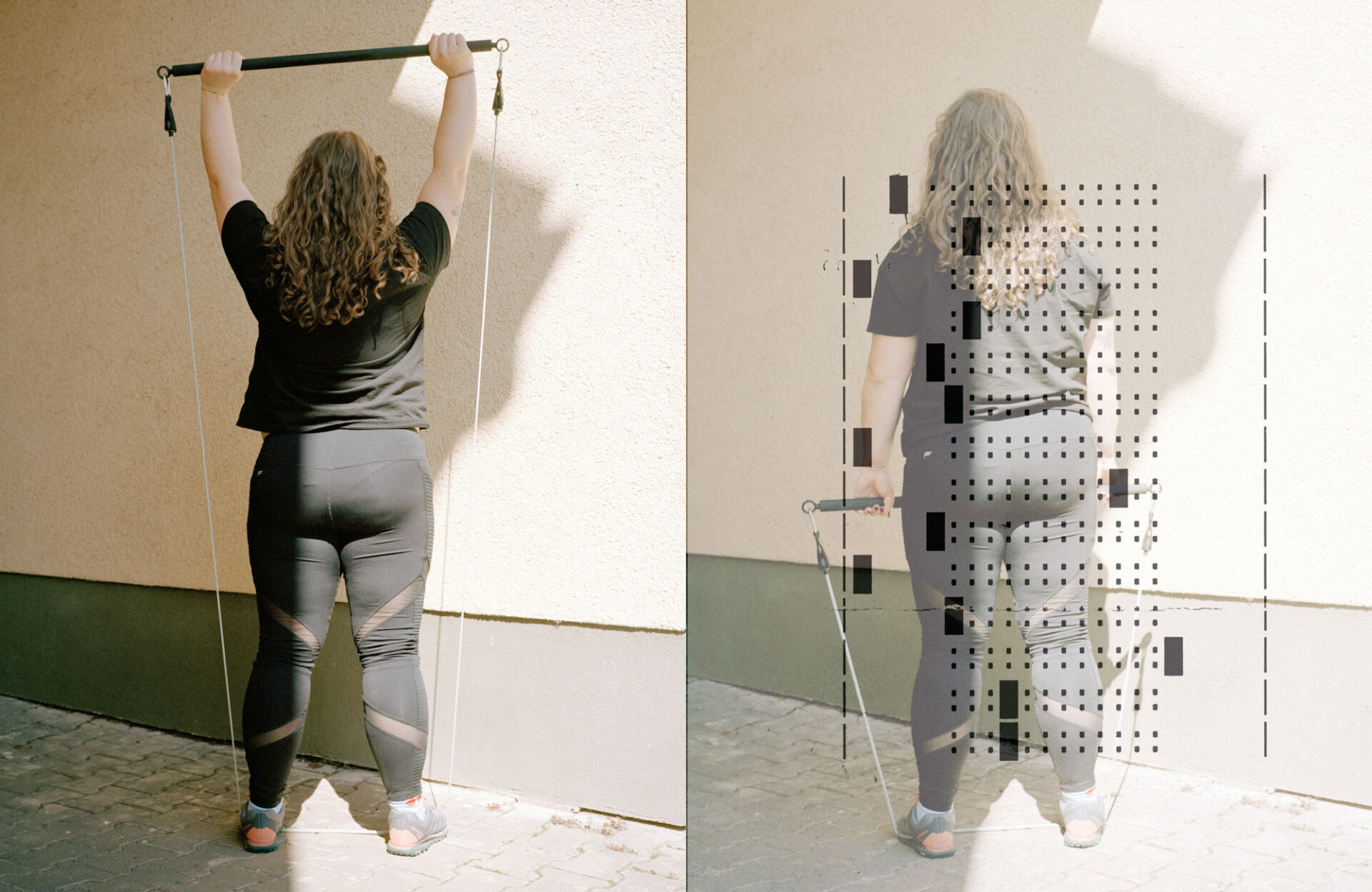 Particularly during sports, hormones can quickly become unbalanced, which is why PCOS patients must be very cautious about the type of sports they practice. The hormones are represented with black bars.
Particularly during sports, hormones can quickly become unbalanced, which is why PCOS patients must be very cautious about the type of sports they practice. The hormones are represented with black bars.  “We don‘t even know what potential is hidden inside us, what ancient knowledge of our cycle is kept inside us because it‘s been completely demonized or not being talked about because it‘s such a taboo subject.“ - Luisa Maria
“We don‘t even know what potential is hidden inside us, what ancient knowledge of our cycle is kept inside us because it‘s been completely demonized or not being talked about because it‘s such a taboo subject.“ - Luisa Maria 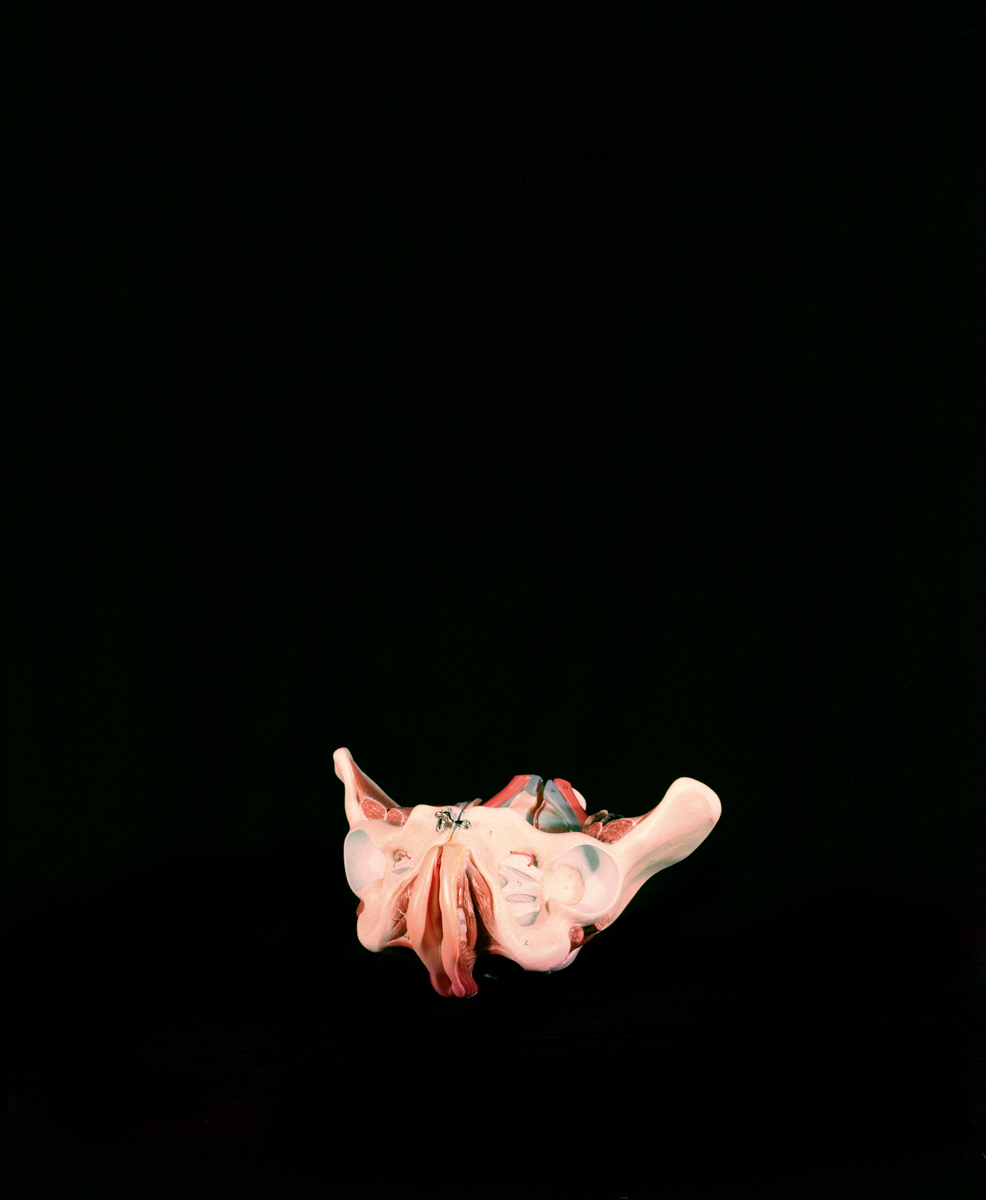 Historically, women‘s biology has been primarily associated with reproduction. This bias is evident in anatomical models of the female pelvis, where the clitoris is often underrepresented or erased entirely. These representations highlight how the focus on the uterus has long influenced and limited the perception of female existence.
Historically, women‘s biology has been primarily associated with reproduction. This bias is evident in anatomical models of the female pelvis, where the clitoris is often underrepresented or erased entirely. These representations highlight how the focus on the uterus has long influenced and limited the perception of female existence. 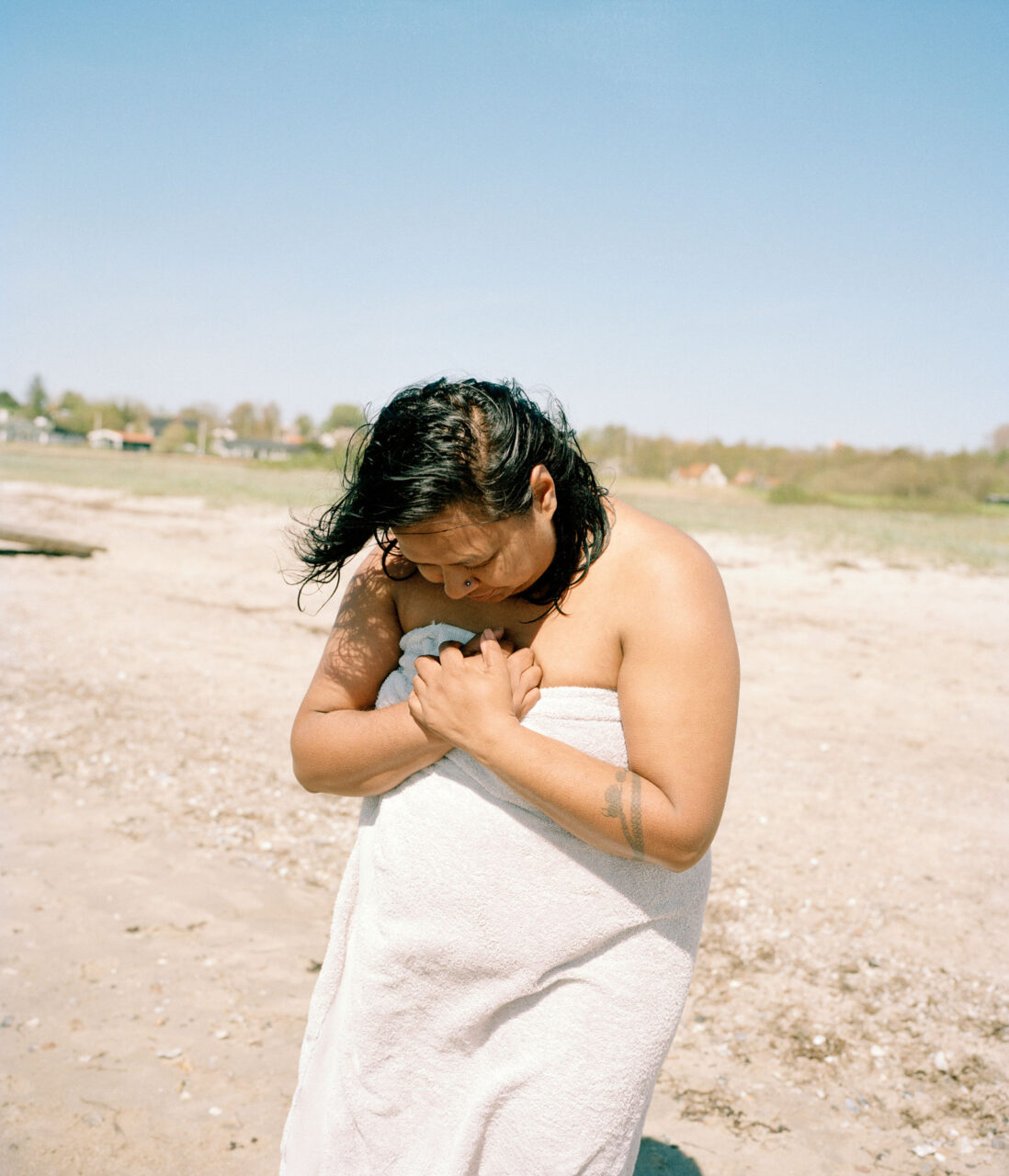 Sugi lives in Denmark and was born in the Tamil diaspora. Since she was young, she has always had an irregular menstrual cycle. To this day, she is not sure whether she wants to have any children at all.
Sugi lives in Denmark and was born in the Tamil diaspora. Since she was young, she has always had an irregular menstrual cycle. To this day, she is not sure whether she wants to have any children at all. 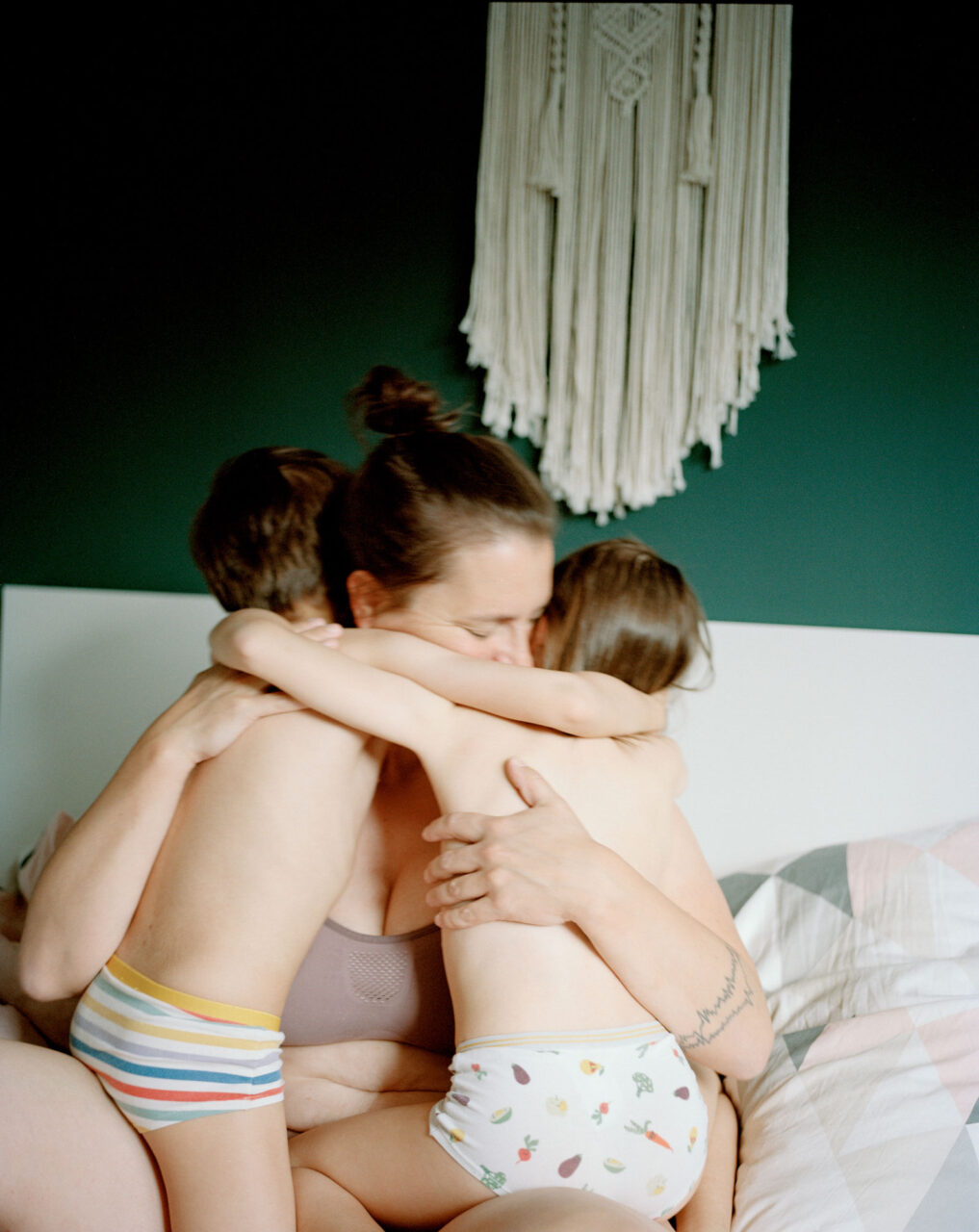 As a mother of twins conceived through artificial insemination, Luisa Maria is grateful for her PCOS diagnosis: "In a way, it reconnected me with my body and allowed me to discover what being a woman means to me."
As a mother of twins conceived through artificial insemination, Luisa Maria is grateful for her PCOS diagnosis: "In a way, it reconnected me with my body and allowed me to discover what being a woman means to me."
 Exhibition "WUT MACHT LUST" in Hanover at GAF in 2023.
Exhibition "WUT MACHT LUST" in Hanover at GAF in 2023. 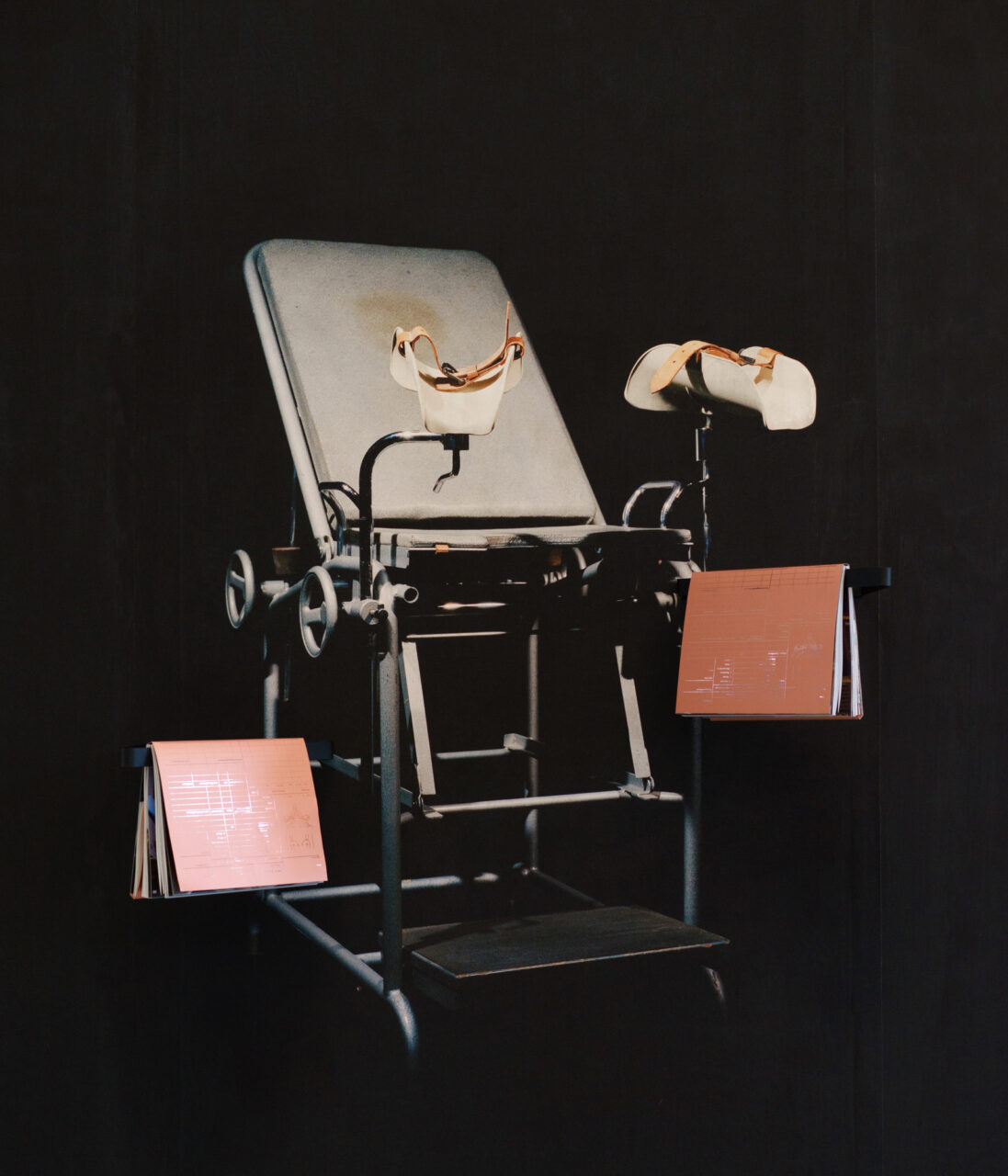

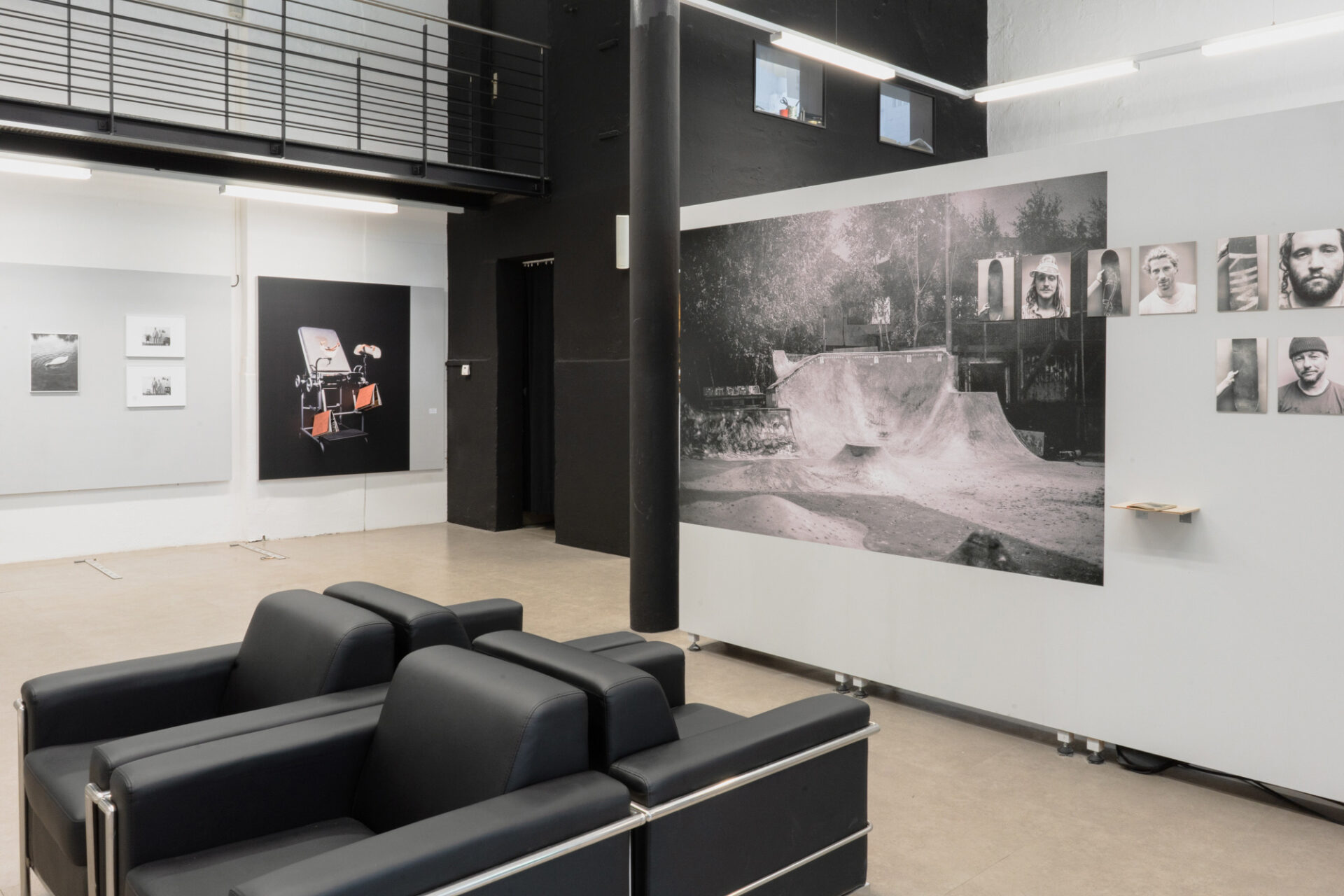
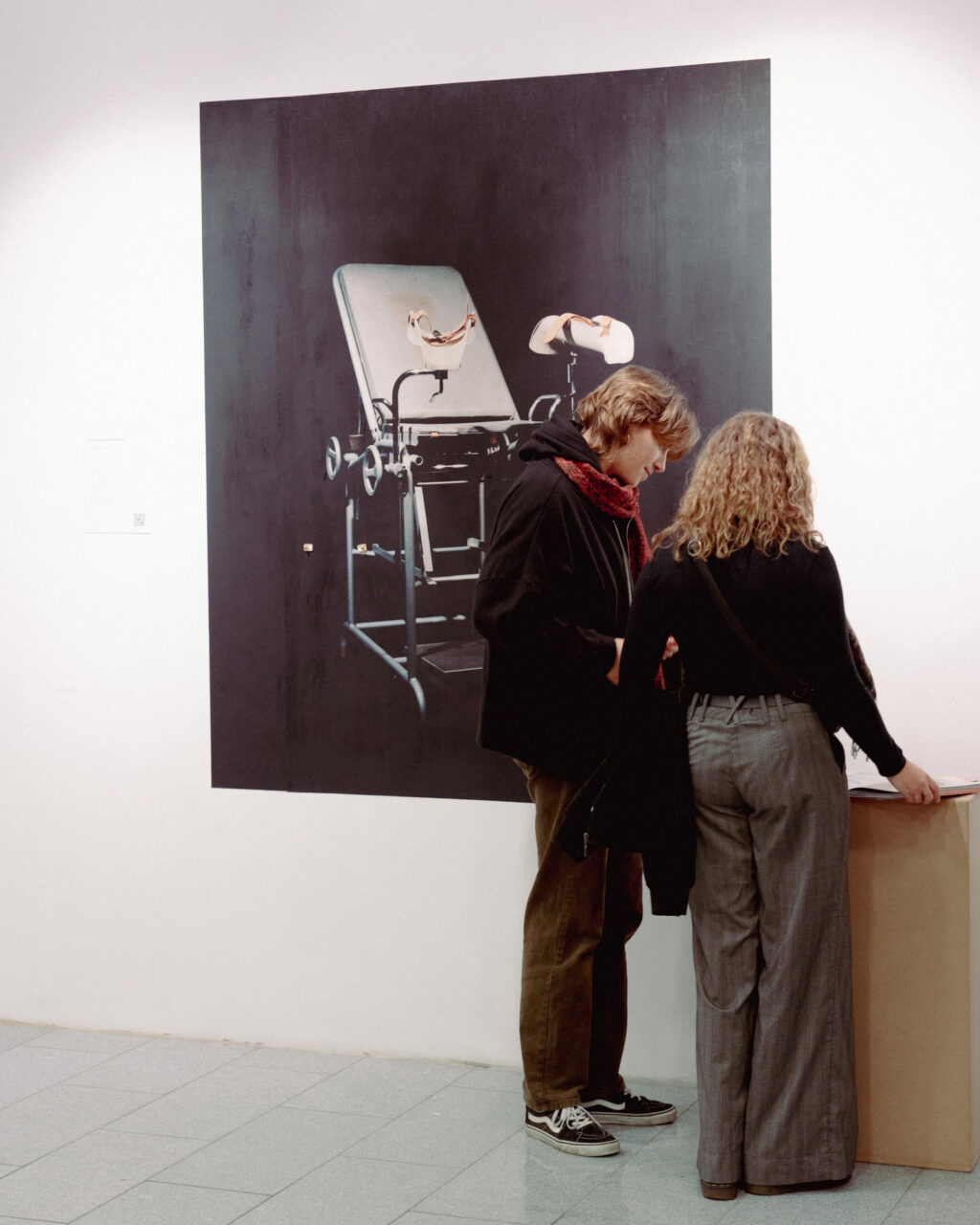 Exhibition in M26 as part of the International Festival of Photographic Images in Regensburg in 2023.
Exhibition in M26 as part of the International Festival of Photographic Images in Regensburg in 2023. 